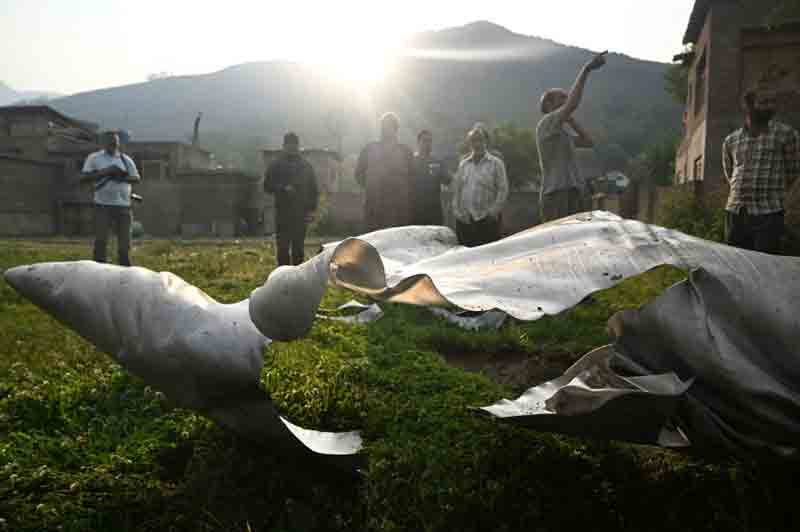On Wednesday, India launched an attack on Pakistan and Pakistani-administered Kashmir, leading Pakistan to claim it had downed five Indian fighter jets, marking the most intense conflict between the two nuclear-armed nations in over twenty years.
India reported that it targeted nine sites associated with Pakistani ‘terrorist infrastructure,’ some of which were linked to a recent assault by Islamist militants that resulted in the deaths of 26 Hindu tourists in Indian Kashmir.
In response, Pakistan stated that six locations were struck, resulting in eight fatalities. The Indian defense ministry asserted that India exercised significant restraint in its choice of targets and execution methods.
Pakistan’s military spokesperson, Ahmed Sharif Chaudhry, confirmed that Indian missiles impacted three sites and reported the downing of five Indian aircraft, emphasizing that these actions were purely defensive. He reiterated Pakistan’s commitment to safeguarding its honor, integrity, and sovereignty at all costs.
Islamabad condemned the attack as a ‘blatant act of war’ and notified the U.N. Security Council of its right to respond to Indian aggression. The two nations also engaged in heavy shelling and gunfire along their de facto border in the Kashmir region, according to police and eyewitness accounts.
Since their independence in 1947, India and Pakistan have fought two wars over the Muslim-majority Kashmir, which both claim entirely but control only in parts. Following a ceasefire in 2003, which both nations reaffirmed in 2021, targeted strikes have been rare, particularly Indian operations in Pakistani territories outside of Pakistani Kashmir. However, analysts warn that the likelihood of escalation has increased due to the gravity of India’s offensive, dubbed ‘Operation Sindoor.’
U.S. President Donald Trump described the situation as “a shame” and expressed his hope for a swift resolution. According to a spokesperson, U.N. Secretary-General Antonio Guterres urged both nations to exercise maximum military restraint.
A spokesperson for the Pakistani military reported that the Indian strikes resulted in eight fatalities, 35 injuries, and two individuals missing. The Indian army stated that three civilians were killed due to shelling from the Pakistani army across the Kashmir border.
Pakistani Prime Minister Shehbaz Sharif acknowledged that Islamabad was responding to the Indian assaults but refrained from providing specifics. The chief minister of Punjab, Pakistan’s most populous province, announced a state of emergency, with hospitals and emergency services on high alert.
A military spokesperson informed broadcaster Geo that two mosques were among the locations targeted by India. The Pakistani defense minister asserted to Geo that all affected sites were civilian and not militant camps, dismissing India’s claims of targeting “terrorist camps” as false.
Stock market, airlines impacted
The news of the strikes had a slight impact on Indian stock futures, with the GIFT NIFTY at 24,311, down 0.3% from the NIFTY 50’s previous close of 24,379.6 on Tuesday. Several airlines, including India’s largest, IndiGo, along with Air India and Qatar Airways, canceled flights in regions of India and Pakistan due to airport and airspace closures.
The Indian strike represents a significant escalation compared to New Delhi’s previous responses to attacks in Kashmir attributed to Pakistan, including the 2019 airstrike following the deaths of 40 Indian paramilitary police and the retaliation for the deaths of 18 soldiers in 2016.
Michael Kugelman, a South Asia analyst based in Washington and a writer for Foreign Policy magazine, noted, “Given the scale of the Indian strike, which was far greater than what we saw in 2019, we can expect a sizable Pakistani response. All eyes will be on India’s next move. We’ve had a strike and a counter-strike, and what comes next will be the strongest indication of just how serious a crisis this could become.”
Discover more from Defence Talks | Defense News Hub, Military Updates, Security Insights
Subscribe to get the latest posts sent to your email.





